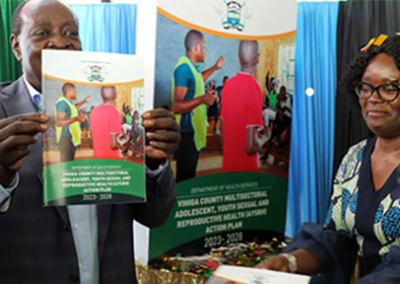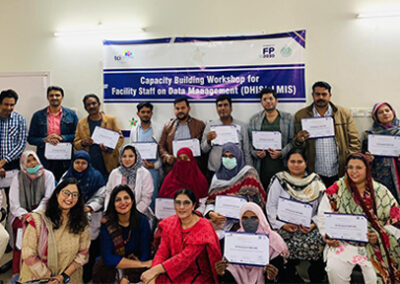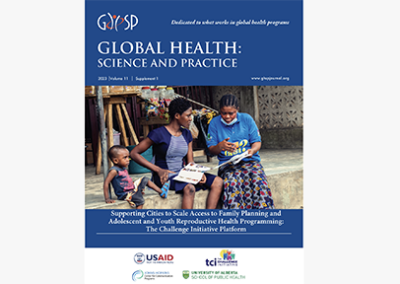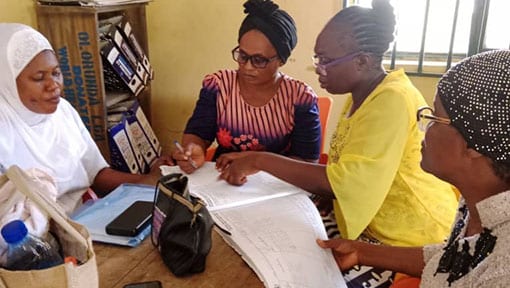
Mrs. Asaolu, Osun State’s PHCB M&E Officer, providing coaching and mentoring to service providers and LGA M&E Officer on Data Management after the deployment of the e-DQA tool in Enikan Oyun PHC in the Olorunda LGA.
Imagine a world where health decisions are founded on accurate and dependable data.
In Nigeria, states are diligently striving towards achieving enhanced health outcomes and indicators across all healthcare domains, including family planning (FP). However, effective monitoring and evaluation (M&E) systems – which are crucial for measuring progress, evaluating health programs, and securing funding for initiatives such as family planning, immunization, and maternal and child healthcare – necessitate high-quality data.
Nevertheless, challenges like communication gaps, inconsistent documentation, inadequate data harmonization, suboptimal data management, and issues related to poor internet connectivity are impacting data quality across different healthcare levels. To address this, TCI’s Nigeria team developed the TCI E-Data Quality Assessment (E-DQA) tool to ensure consistent and reliable data across all TCI-supported states and to promote data-driven decision-making across Nigeria.
Furthermore, there is an urgent need to conduct a data quality assessment (DQA) to identify other data quality gaps and implement lasting solutions across states’ data management systems.
The TCI E-DQA tool is an innovative solution, developed to enhance FP data quality across service delivery points. The intention is to aid the hub in measuring the improvements in data quality across facilities in the TCI-supported local government areas (LGAs). The TCI E-DQA tool focuses on three key areas: data availability, data consistency, and data validity. It utilizes a simple “yes/no” format for objectively verifiable criteria, making it easy to administer. The tool is deployed electronically using Kobo Collect, an e-monitoring system, allowing for real-time analysis.
Across the current 11 TCI-supported states, the TCI E-DQA tool was implemented in three phases:
- Planning: In this phase, stakeholders met to discuss state data, form teams, and train them on the tool and its operations.
- Fieldwork: State and LGA teams, working in pairs, visited 444 (TCI and non-TCI) health facilities to assess data quality using the E-DQA tool.
- Analysis and Dissemination
Findings
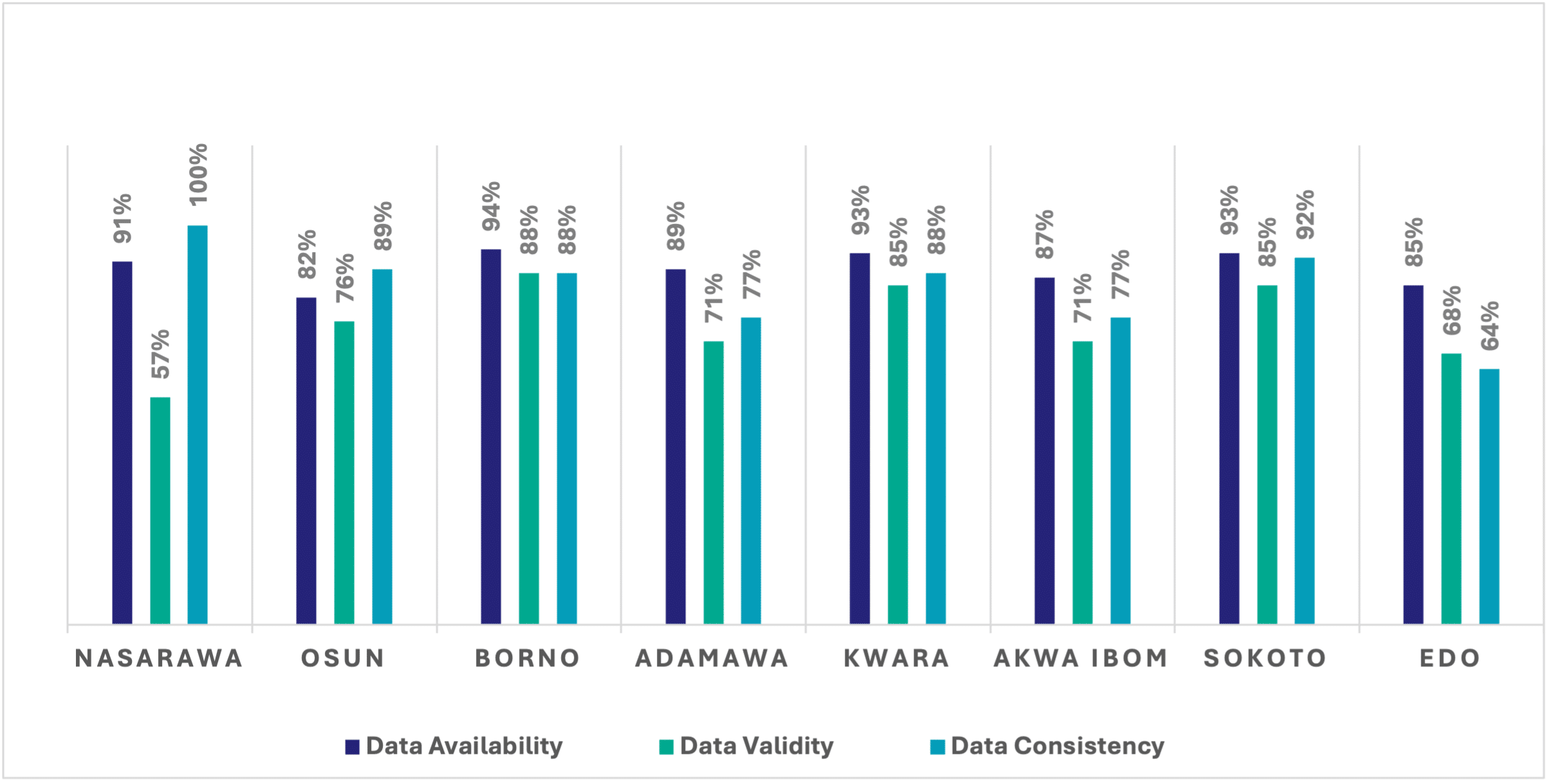 The E-DQA tool shed light on data quality across different states. The tool revealed variations in data availability and validity between states. These insights have been instrumental in identifying the root causes of data quality issues across the states. In the chart above, we show the overall score which is expressed as a percentage of the expected outcome for the DQA framework, which includes Data Availability, Data Consistency and Data Validity.
The E-DQA tool shed light on data quality across different states. The tool revealed variations in data availability and validity between states. These insights have been instrumental in identifying the root causes of data quality issues across the states. In the chart above, we show the overall score which is expressed as a percentage of the expected outcome for the DQA framework, which includes Data Availability, Data Consistency and Data Validity.
Sharing success stories from the states, Mrs. Asaolu, the Osun State Primary Health Care Board (PHCB) M&E Officer had this to say about Osun State’s experience”
Previously, the State lacked a standardized system for validating Family Planning (FP) data and the tools were inconsistent across facilities. This e-DQA has helped us identify some hidden issues in our data management system. For instance, by triangulating data sources (client cards, FP Register, Monthly Summary Form, and data elements on the DHIS 2 dashboard), the tool exposes inconsistencies and ensures high-quality FP data for decision-making. The tool helps identify and correct data error reporting.”
She added:
We are really thankful to TCI for ensuring that FP service data thrives among other health components with the deployment of this innovative tool, and as a state, we are advocating for the scaling up of e-DQA tools to other LGAs in the state.”
Mr. Lawal, the Assistant HMIS Officer in Kwara State echoed:
The e-DQA tool developed by TCI has assisted us in Kwara to improve the quality of family planning services data at health facilities and on DHIS. Before this tool was deployed, we had a low reporting rate in the state. Using the tool and following up with supportive supervision visits has motivated the medical record officers at the facilities and M&E officers at the LGAs to improve the consistency of reported data across source documents and the DHIS. We’ve seen our reporting rates rising from 70% to over 95% in Kwara State.”
He added:
With TCI’s contribution, we’ve seen significant and strategic improvements in our health indices. We appreciate TCI’s impact and look forward to further collaboration for an effective healthcare system in Kwara State.”
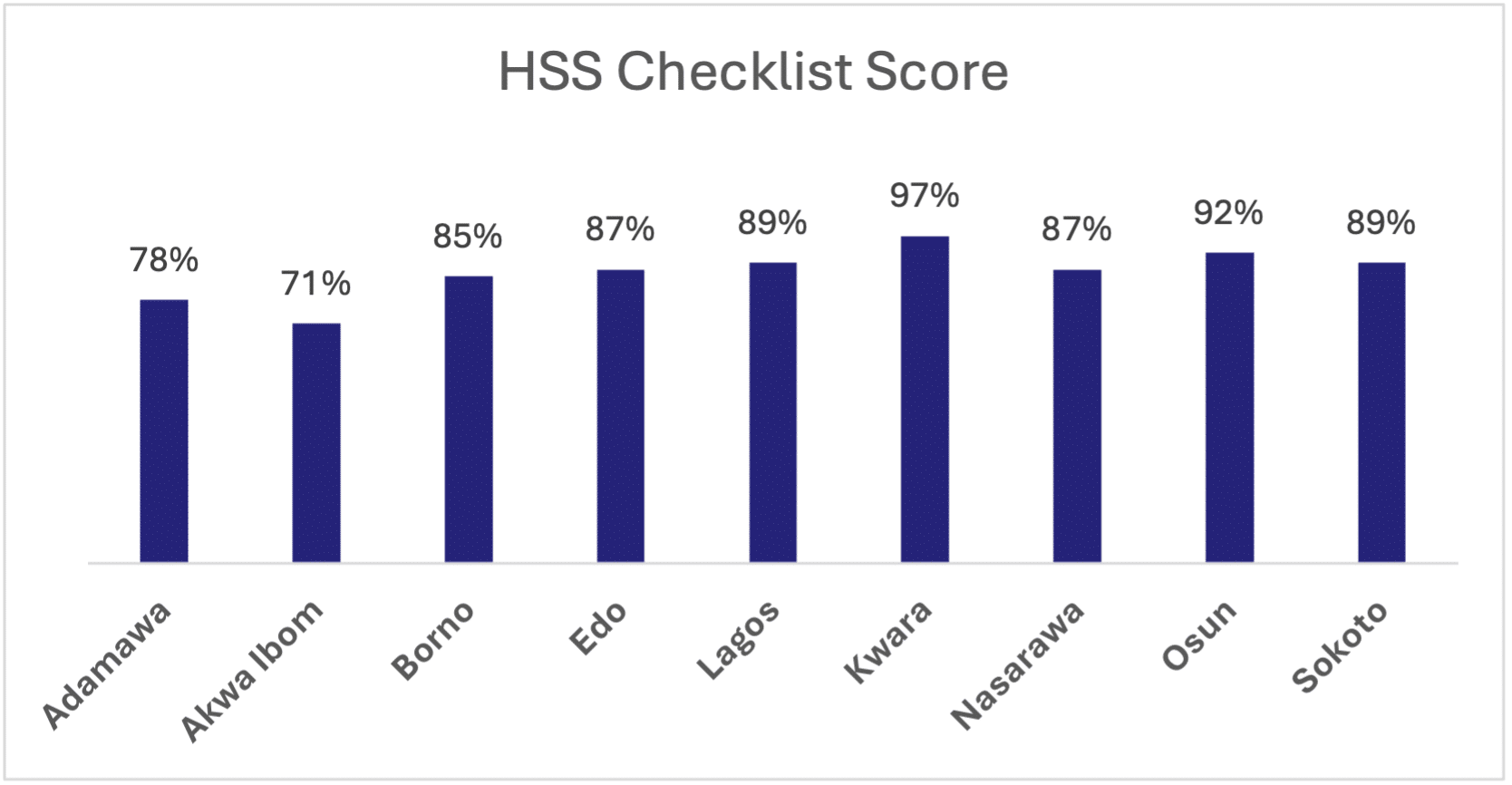 Affirming the robustness of the e-DQA and its quality findings, the team deployed Health System Strengthening (HSS) checklist data quality tools across the states. The overall scores of the HSS checklist across all states further corroborate the e-DQA findings, indicating a significant improvement in health system strengthening within HMIS documentation.
Affirming the robustness of the e-DQA and its quality findings, the team deployed Health System Strengthening (HSS) checklist data quality tools across the states. The overall scores of the HSS checklist across all states further corroborate the e-DQA findings, indicating a significant improvement in health system strengthening within HMIS documentation.
Thus, the TCI e-DQA tool has played a pivotal role in improving data accuracy and reliability. These efforts have significantly impacted family planning service statistics and the number of additional Family Planning (FP) users. The tool has also helped to identify and address challenges, such as communication gaps and data entry errors, and duplicated/parallel reporting methods by Implementing Partners (IPs).
Is your state struggling with the quality of family planning data? Get additional details and learn more about this innovation from the TCI Nigeria Team, ”the TCI e-DQA tool” and how it can help through this link TCI E-DQA Tool.


